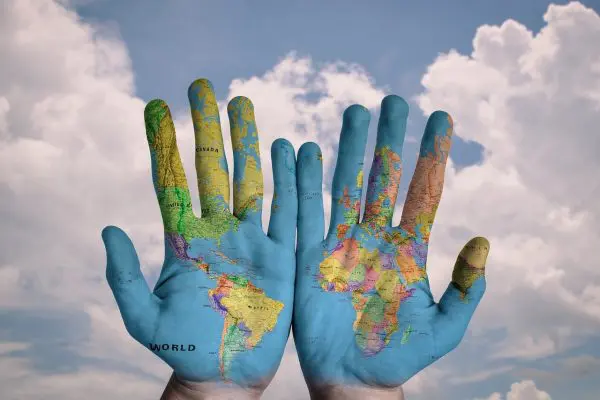Cooperation for development cannot be subordinated to politics
On Sunday, July 23 2023, the International Conference on Development and Migration will take place in Rome. “We must remember,” writes Roberto Ridolfi, president of Link2007, “that cooperation for development and the partnerships that qualify it cannot, however, be subordinated to contingent political approaches, which are constantly evolving.”

20/07/2023
By Roberto Ridolfi
On Sunday, July 23, 2023, the International Conference on Development and Migration will be held in Rome, at the Ministry of Foreign Affairs and International Cooperation. Heads of State and Government, including Tunisian President Kais Saied, and Foreign Ministers from the broader Mediterranean region, as well as top representatives from the European Union and major international financial institutions, will participate.
The Conference’s proceedings will begin with a welcoming address by the Minister of Foreign Affairs and International Cooperation, Antonio Tajani, followed by the opening speech by the Prime Minister, Giorgia Meloni. Two working sessions are scheduled, with conclusions entrusted to the Prime Minister, followed by a press conference. The opening speeches and press conference will be live-streamed on the Farnesina and Palazzo Chigi YouTube channels.
What we know about the event
There is very little information available about this event, given its importance. “I consider it the beginning of a path that can allow for a different partnership from the past,” stated President Giorgia Meloni.
Regarding the “Migration and Development” nexus, the Ministry of Foreign Affairs and International Cooperation and the Italian Agency for Development Cooperation recently developed a document of about ten pages defining the “Strategic Guidelines on the Migration-Development Nexus.” It is a concise and precise document that outlines both strategic objectives and priorities for action, as well as monitoring methods and evaluation criteria for development cooperation initiatives related to migration.
Observations from Link 2007 Network
Given the relevance of these Guidelines for international cooperation and the bilateral partnerships that form their backbone, which are intended to be “different from the past,” the Link 2007 Network sought to delve into them based on the experience of their NGOs and in the spirit of constructive dialogue with ministerial institutions for quality cooperation. This effort resulted in a series of observations published on the Network’s website, some of which we present here.
The Guidelines draw, in summary, from a previous document by the Cncs working group on the topic and refer to policies and measures adopted by the UN concerning both refugees and “orderly, safe, and regular” migration. The focus is on actions in third countries, such as aid to refugees in those countries, without, however, considering – if only for reasons of coherence in development policies – the reception methods for refugees in Italy, whose costs are nevertheless included as Official Development Assistance in annual reports to the Dac.
The dual orientation
The priority areas of action express a dual orientation: international conventions, agendas, and commitments on one hand, and national policies on the other. This is consistent with the current government policy but less so with the broad and ambitious mandate of development cooperation, which is a “qualifying part of Italian foreign policy,” inspired by “the principles of the United Nations Charter and the Charter of Fundamental Rights of the European Union,” recognizing “the centrality of the human person, in both individual and community dimensions,” pursuing objectives aimed at “protecting and asserting human rights and human dignity” (art. 1 of Law 125/2014).
Italy’s areas of action
The Guidelines refer in particular to Italy’s areas of action, which in summary are those adopted internationally: “political dialogue, border management, assistance to refugees and migrants, economic development, information campaigns, readmissions, voluntary assisted returns, regular migration, protection and asylum, and promotion of human rights.” However, these areas can be implemented and interpreted differently based on prevailing political orientations, which can strengthen or weaken the value of the same Guidelines and the strength of partnership relations. Policy coherence is called for to achieve the goals of the 2030 Agenda and sustainable development. However, this coherence seems to remain confined to the migration field, while European Council Resolution 8529 (16.05.2019) reminds all member states of the obligation stipulated by the Treaty to consider the objectives of development cooperation in all internal and external policies.
5 strategic objectives
There are five strategic objectives indicated with their corresponding priorities for action, containing valid elements of bilateral cooperation that partially “qualify” it, as undoubtedly intended by the document’s drafters. However, some elements appear to be constrained by the dual orientation highlighted above, which tends to undermine the indispensable “coherence of policies – internal and external – with the objectives of development cooperation” and the ambitions of Law 125.
The guidelines undeniably express a positive approach to development cooperation, albeit in our opinion, a partial and not very ambitious one. The current political approach, though in a phase of adaptation, evolution, and refinement, seems to influence its values and contents. However, cooperation for development and the partnerships that qualify it cannot be subordinated to contingent political approaches, which are constantly evolving. Initiatives and activities would risk easily transforming into something else, no longer definable as development cooperation, sustainability, or equal partnerships, precisely those that we want to build and multiply as the distinctive features of the Italian orientation.
The document “Guidelines on the Immigration-Development Nexus – Observations from LINK 2007.”
* Roberto Ridolfi, President of LINK 2007
The article was published in VITA NON PROFIT.
